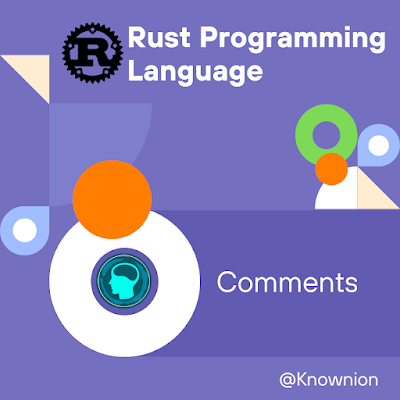Rust Programming
Comments are a way to improve the readability of a program. Comments can be used to include additional information about a program like author of the code, hints about a function/ construct, etc. The compiler ignores comments.
Rust supports the following types of comments:
- Single-line comments ( // ) : Any text between a // and the end of a line is treated as a comment
- Multi-line (Block) comments (/* */) : These comments may span multiple lines.
Single Line Comments
In Rust, we use two forward slashes // to create a line comment. For example,
Input Example 1
fn main () {// declare a variablelet x = 1;println!("x = {}", x);}{codeBox}
Input Example 2
fn main() {let x = 1; // declare a variableprintln!("x = {}", x);}{codeBox}
Output
x = 1{codeBox}
The comment extends up to the end of the line and is also known as single-line comments.
Multi line (Block) Comments
The symbol /*...*/ to denote the block comment. It starts with /* and ends with */. For example
Input
fn main() {/*declare a variableand assign value to it*/let x = 1;println!("x = {}", x);}{codeBox}
Output
x = 1{codeBox}
You can see the block comment extends for multiple lines.
Credits & Copyrights©: Javatpoints & programiz
